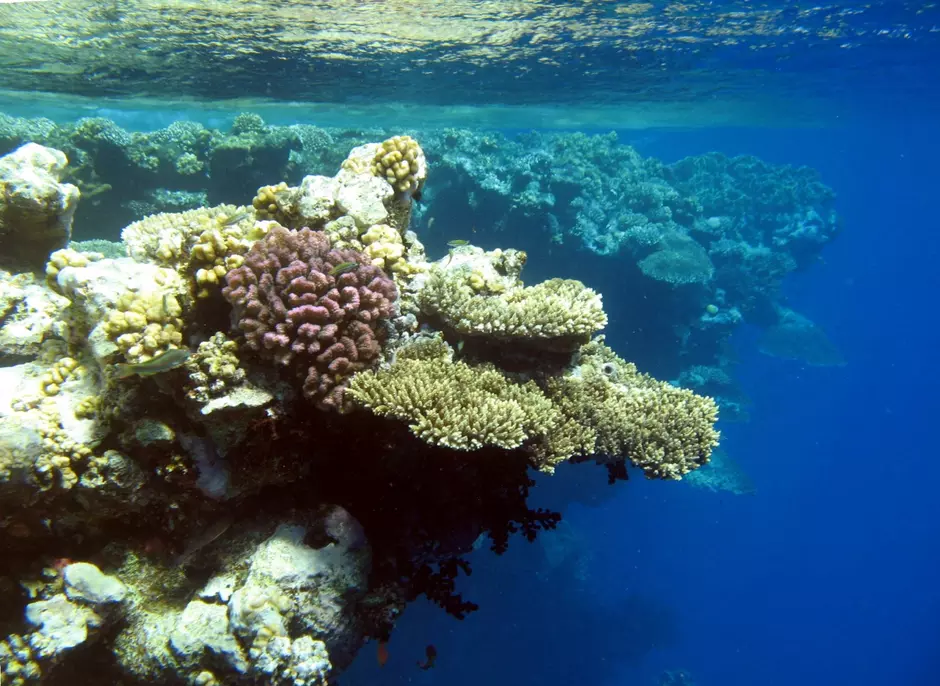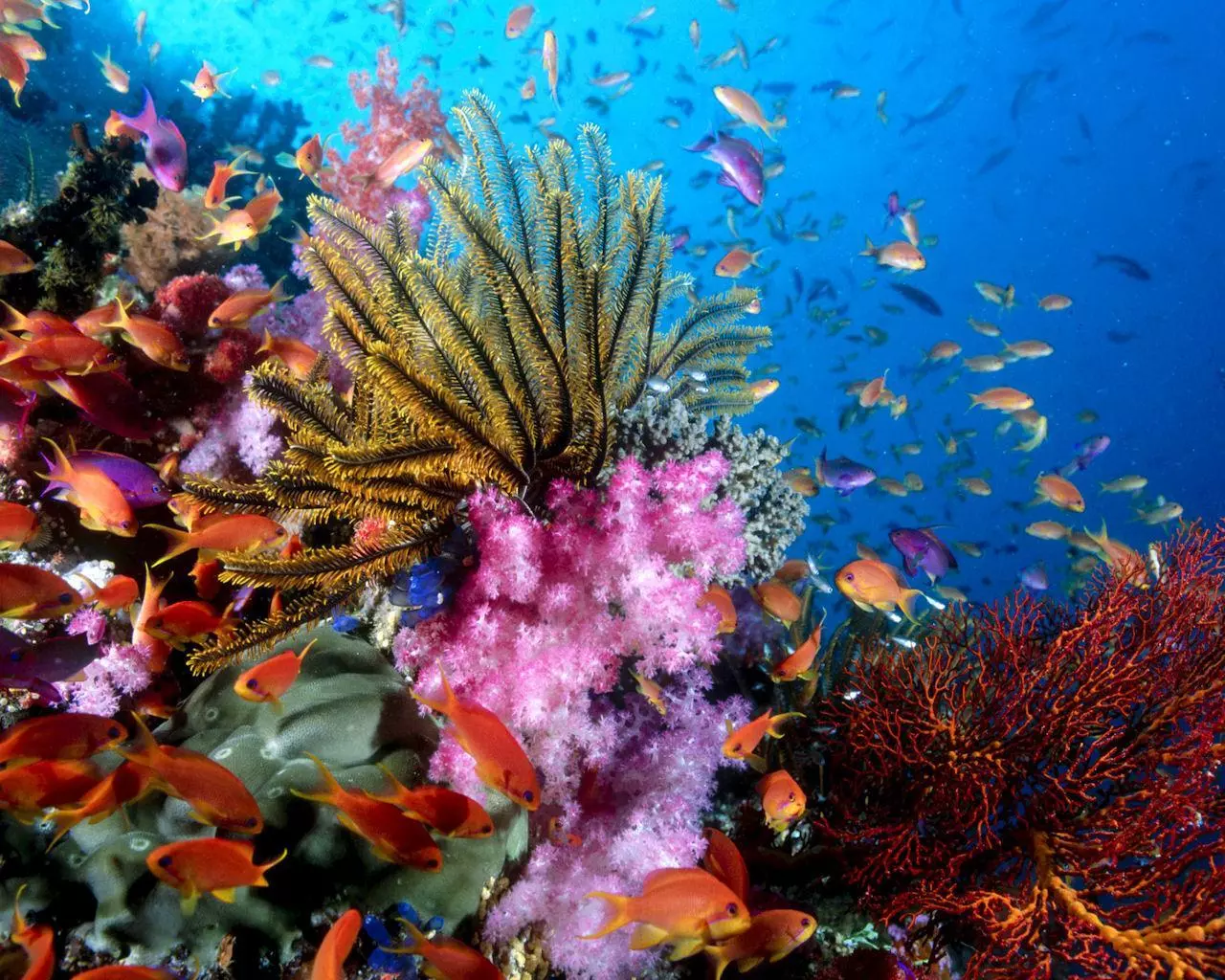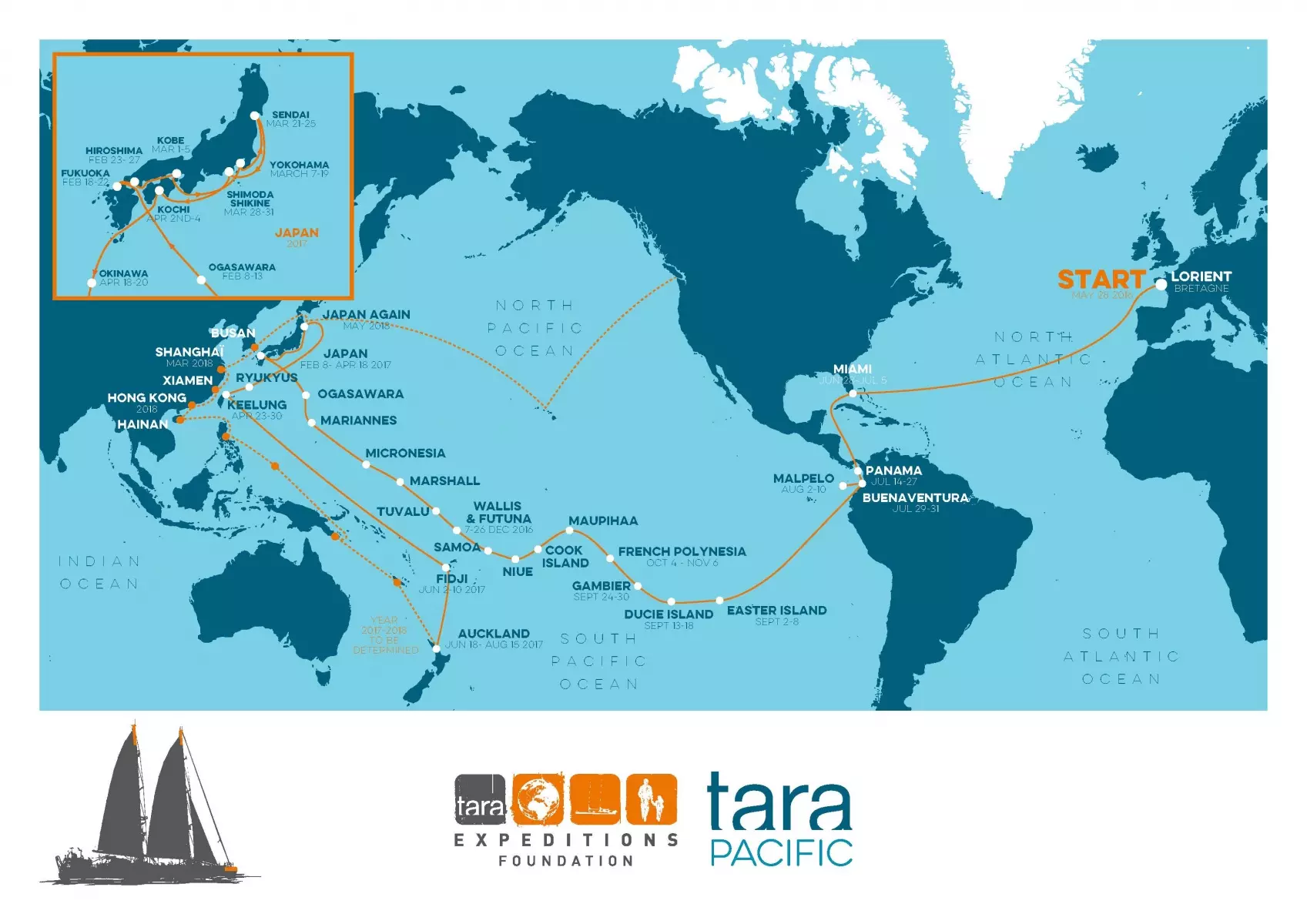
Environment and biodiversity
Place
Pacifique
Sponsor
Régis Calmels
Grants
€600,000 granted by the 26/05/2015 Board Committee for three years
€12,600 granted the 12/01/2017 (support for actions pedagogical)
Project Leader
Coral reefs cover 0.02% of the area of oceans but house 25% of marine biodiversity. This biodiversity sustains almost one billion people, primarily in Southern Asia (“the Coral Triangle”). These three figures demonstrate the ecological and economic importance of coral reefs. And yet they are not adequately protected: 20% have disappeared, definitively; 25% are seriously endangered and another 25% may come under threat looking to 2050. Their greatest enemy: the combined effects of a growing world population and climate change.
To understand the state of health of coral reefs and inform both the general public and policy makers about this issue, Tara Expéditions is launching Tara Pacific, which will pursue its journey from May 2016 until July 2018. The schooner will visit a very large number of coral reef islands spread out over huge areas: French Polynesia alone counts 347 islands over an area of almost 6,800 square meters. Most of these islands are not affected by direct man-made pollution, but are threatened by the global changes taking place on our planet. Whatever the cause, Tara Expéditions will focus on measuring both types of disruption and furthering our understanding of them.

Understand and communicate
Tara Pacific is the schooner’s 11th expedition since 2003 and the third supported by the Veolia Foundation. Like the preceding voyages, Tara Pacific has chosen two fields of action: science and building awareness.
The scientists will be studying the adaptive potential and resilience of coral to climate change, and – in some areas – to man-made pollution; they will also be deepening their knowledge of the biodiversity of the reefs, from individual gene to the ecosystem. Lastly they will be looking at the possible applications of this research for human health.
Tara Expéditions will inform the public about the progress of the expedition through the press, its own website and those of its partners – including the Veolia Foundation – and international TV documentaries. The schooner will carry out two awareness-raising campaigns in Asia, in 2017 and 2013, with several stopovers currently being planned in Japan, South Korea and China. Before its return to Europe, Tara Expéditions plans stopovers in Singapore, the Middle East and the Mediterranean to publicize its work.

Étienne Bourgois, Chairman of Tara Expéditions
For Tara, the idea is to give policy makers a better understanding of the role played by the ocean in climate regulation and show them that the greater the impact on the ocean, the less it will be able to perform this role. The oceans produce 50% of the oxygen we breathe and sequester almost 25% of CO2. We don’t yet know a great deal about the major changes taking place in the ocean.
But today, significant scientific advances have given us credibility in a number of areas. For several years now, Tara Expéditions has committed to representing the voice of the ocean in climate talks. Since our experience at the Rio +20 meeting in 2012, Tara has developed an advocacy and insights for policy makers and we need to attract a great many players to put this message across. Acting as advocate for the oceans is not something we can do alone! We have worked with other organizations to create the Ocean & Climate platform, which today brings together some 60 partners.
Tara’s engagement and the mobilization of these players have already borne fruit, during COP21. The ocean is now included, for the first time, in the Paris Agreement. Twenty-two countries have also committed to supporting ocean-related issues in the United Nations climate policy mechanisms.
Denis Allemand, director of the Scientific Center of Monaco, and Serge Planes, director of CRIOBE (Center for Island Research and Environment Observatory) and of Labex Corail (Laboratory of Excellence – French “Investment in the Future” program).
(Not including Awareness-Building Stopovers)
May 2016– August 2017
Panama, Malpelo (Colombia), Easter Island, Ducie Island, Gambier Islands, Tuamotus, French Polynesia, Society Islands, Cook Islands, Niue, Samoa, Futuna, Tuvalu, Marshall Islands, Micronesia, the Marianas, Japan
Sep. 2017– Feb. 2018
New Caledonia, Papua-New Guinea, Palau, Philippines
- Tara Oceans (2009-2013) : An unprecedented three-year scientific expedition on all the seas of the globe (understanding the spatial organisation of ecosystems and understanding their response to atmospheric viariations).
- Tara Mediterranean (2014) : Destination the Mediterranean to investigate the impact of plastics on the ecosystem.

